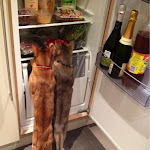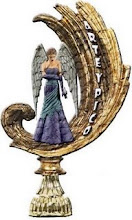I'd been a bit worried about going on choir tour with my daughter's school. Sitting in a cafe on rainy London afternoon months ago, it had seemed like a fun idea to go with them and sing in St Mark's in Venice.
My friend Kitty (the mother of my daughter's friend Becca) and I had suggested it as a joke.
To our surprise, the girls seemed very keen on the idea. To our greater surprise, so did the school music department (though we do sing in the parents' section of the choir for big concerts, so they knew vaguely what they were letting themselves in for.)
Perhaps it would be too exhausting. Perhaps it would be too claustrophobic, spending our holiday with 40 schoolchildren. Perhaps sharing a room would drive us mad. But then Tuesday 10 July arrived and it was too late to worry about it any longer. We flew out from Gatwick to Venice, then travelled by coach to the lake resort of Bled.
Our tour guide, Sara, had been told by the teachers to tell the kids that the journey would take a couple of hours. In fact, it took four (including a quick stop for lunch). Kitty and I didn't realise that this was a ruse to stop the kids moaning about the length of the journey, so we spent the first few days making jokes about "Slovenian time", in which every hour seemed to be twice as long as its British equivalent.
Choir tours can be quite hectic. The point, of course, is to perform concerts, which means you need time to rehearse as well. In between, there is a chance to do other things, such as a bit of sightseeing, but there's not that much time to sit and do nothing. So when we saw the castle sitting high above the lake, and the clouds lounging lazily on the mountains, below, you could almost feel everything start to relax.
It is a lovely place, quite close to the border with Austria and about 50 miles from the capital of Slovenia, Ljubljana. Slovenia's neighbours also include Italy, Croatia and Hungary, and these different influences are particularly noticeable in the cuisine. You might be offered goulash, schnitzel and pasta on the same menu.
The Slovene language is Slavic, so quite similar to Russian (especially in terms of grammar), but basic phrases for thank you and please, for example, are quite different. It doesn't look like Russian, as it uses the Latin alphabet (ABCD etc) rather than the Cyrillic alphabet. In fact, the written language looks more like Hungarian or Polish, with various stress signs to change the pronunciation of vowels and consonants. Most of the population is Catholic, and there are hundreds of old churches, some dating back to early Christian times.
Our hotel, the Hotel Park, was modern and spacious, and the food was good too - lots of salad and fresh fruit and vegetables. The sight of bowls piled high with peaches, apricots, and cherries was a treat for English eyes. (Cherries, in particular, cost a fortune in the UK.)
The service was excellent and there was a pool, with a hot tub, on the top floor, so you could sit in the hot tub and gaze out at the lake and the mountains. Bliss!
If you wanted some gentle exercise, you could walk or cycle round the lake (cycle hire was €1), and the more energetic could walk up to the castle, where there was a restaurant and a panoramic view of the surrounding hills and mountains.
There was a tiny little church on an island in the middle of the lake, and you could hire a boat to take you over. Legend has it that if you ring the church bell and make a wish, your wish will come true.
Between the trees, below, you can just see the summer toboggan zig-zagging down the hillside. A chairlift takes you up to the top, and then you whizz down a kind of monorail on a little cart. It's got a brake, so you can control it.















